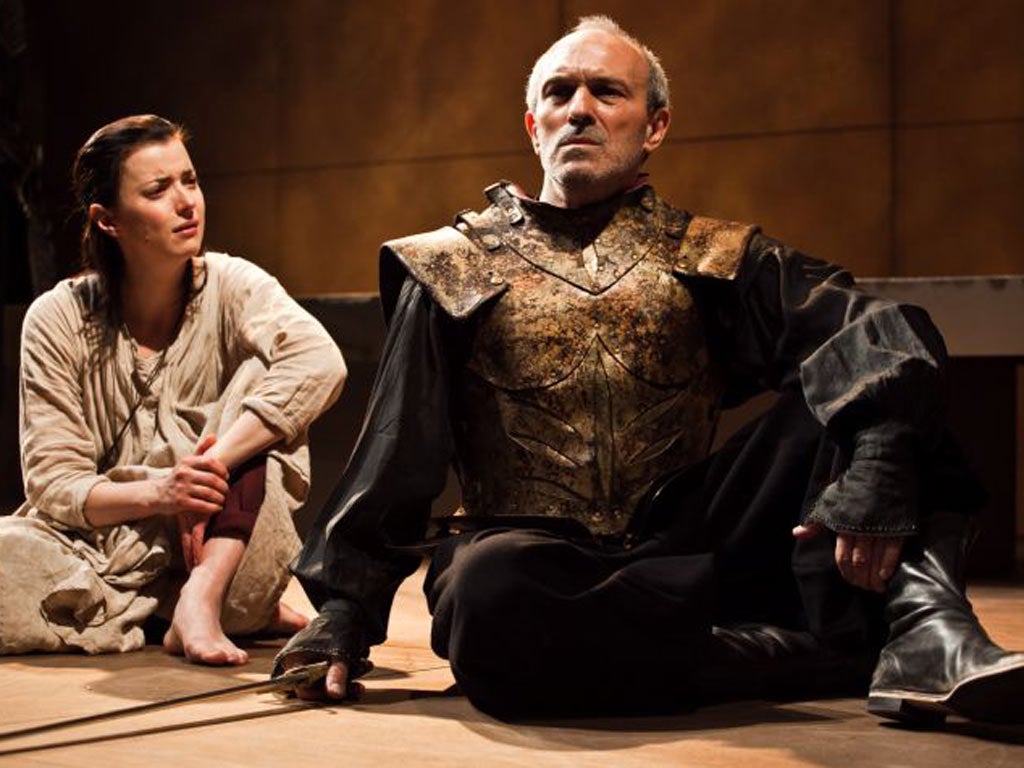
The story of Iphigenia is one of slaughtered innocence and unbearable cruelty. Too unbearable, in fact, for the Greek dramatist Euripides, who decided to change it. According to legend, Iphigenia is sacrificed to the gods by her father, Agamemnon, before he leads the Greek forces into battle at Troy. In Euripides's version, she is saved by the goddess Diana as the sacrificial knife is about to fall.
Goethe's Iphigenia, which, unbelievably, is receiving its UK premiere only now, 200 years after it was written, follows Euripedes's version. We join the young Grecian as she tends the temple of Diana in Tauris, a land ruled by a tyrannical king who wants to take Iphigenia as his wife. Her brother, Orestes, and his friend Pylades arrive in Tauris; they are taken prisoner and Iphigenia is ordered to kill them.
Director Laurence Boswell might be thought over-ambitious in programming this epic work for his first season at the helm of the small Ustinov Studio. But in fact Goethe's play works well in the space: its themes may be massive, but the writing suits the studio's intimacy. There are only five characters and the script is littered with asides during which the actors make full use of the proximity of the audience.
Laura Rees in the main role is other-worldly. Her hands dance with each other in a sort of sacred semaphore as she speaks, a movement which grates at first but gradually hypnotises. This is a play which eschews the realistic: it is the odd moment of naturalism that jars.
Her brother Orestes, played by Tom Mothersdale, arrives at the temple in an attempt to rid himself of the furies who torment him for killing his mother. He is gangly and awkward but there's something of the determination of Michelangelo's David about him. You might not believe that he's capable of killing his mother, but his gut-wrenching guilt feels vividly real. His friend Pylades, played by a likeable Adam Jackson-Smith, is a loyal companion for his miserable friend.
Inevitably, much of the play is taken up with exposition, and what action there is happens off stage. This is a fascinating play, in an excellent new translation, but without a working knowledge of the legend you'd be lost: you may as well watch it in Greek.
To 20 December (01225 448844)
Subscribe to Independent Premium to bookmark this article
Want to bookmark your favourite articles and stories to read or reference later? Start your Independent Premium subscription today.

Join our commenting forum
Join thought-provoking conversations, follow other Independent readers and see their replies